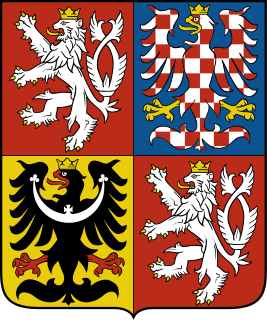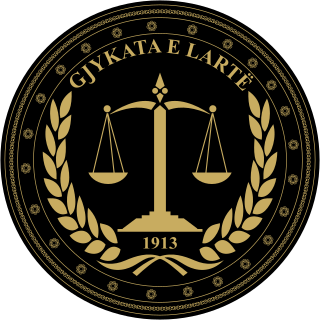External links
- Important case law of those courts can be obtained in the website http://lawdb.intrasoftnet.com only from subscribers and only in Greek.
| This article about government in Greece is a stub. You can help Wikipedia by expanding it. |
Greece , as a civil law country has administrative courts. The establishment of those courts can be found in article 94 of the Constitution of the Hellenic Republic 1975, as revised in 2001. The administrative courts are composed from districts Courts of First Instance, district Courts of Appeal and a Supreme Administrative Court that is called the "Council of State". The Council of State is also the Court of first and last instance in some important cases. The Greek administrative courts have jurisdiction upon litigations between the State and the civilians. The most important of them are tax cases, social security cases, tort liability of the State cases, illegal immigration cases etc.
| This article about government in Greece is a stub. You can help Wikipedia by expanding it. |
An ecclesiastical court, also called court Christian or court spiritual, is any of certain courts having jurisdiction mainly in spiritual or religious matters. In the Middle Ages these courts had much wider powers in many areas of Europe than before the development of nation states. They were experts in interpreting canon law, a basis of which was the Corpus Juris Civilis of Justinian which is considered the source of the civil law legal tradition.

The Court of First Instance is the lower court of the High Court of Hong Kong, the upper court being the Court of Appeal. Formerly the High Court of Justice of the Supreme Court of Hong Kong, it was renamed the Court of First Instance by the Basic Law after the transfer of sovereignty over Hong Kong from the United Kingdom to China.

Politics of Northern Cyprus takes place in a framework of a semi-presidential representative democratic republic, whereby the president is head of state and the prime minister is the head of government, and of a multi-party system. Executive power is exercised by the government. Legislative power is vested in both the government and the Assembly of the Republic. The judiciary is independent of the executive and the legislature.

The judicial system of Turkey is defined by Articles 138 to 160 of the 1982 Constitution. Civilian and military jurisdiction are separated. While military courts usually only try military personnel, they can also try civilians in times of martial law and in matters concerning military service.

The judicial system of Israel consists of secular courts and religious courts. The law courts constitute a separate and independent unit of Israel's Ministry of Justice. The system is headed by the President of the Supreme Court and the Minister of Justice.

The law of Brazil is based on statutes and, partly and more recently, a mechanism called súmulas vinculantes. It derives mainly from the civil law systems of European countries, particularly Portugal, the Napoleonic Code and the Germanic law.

In Greece, the Council of State is the Supreme Administrative Court of Greece.
The judicial system of Greece is the country's constitutionally established system of courts.

The supreme court is the highest court within the hierarchy of courts in many legal jurisdictions. Other descriptions for such courts include court of last resort, apex court, and highcourt of appeal. Broadly speaking, the decisions of a supreme court are not subject to further review by any other court. Supreme courts typically function primarily as appellate courts, hearing appeals from decisions of lower trial courts, or from intermediate-level appellate courts.

The Judiciary of Portugal is a system of courts that together constitute one of the four organs of Sovereignty as defined by the Portuguese Constitution. The courts are independent from the other three Portuguese organs of Sovereignty.

The court of appeal is the main appellate court in the judicial system of Belgium which hears appeals against judgements of the tribunals of first instance, the enterprise tribunals and the presidents of those tribunals in their judicial area. There are five courts of appeal for each of the five judicial areas, which are the largest geographical subdivisions of Belgium for judicial purposes. The division of the Belgian territory into the five judicial areas is laid down in article 156 of the Belgian Constitution. A judicial area covers multiple judicial arrondissements ("districts"), except for the judicial area of Mons. Each arrondissement has a tribunal of first instance. Further below, an overview is provided of the five courts of appeal and the judicial arrondissements their judicial area covers. It is important to note that the courts of appeal do not hear appeals against judgements of the labour tribunals; these are heard by the courts of labour.

The Judiciary of the Czech Republic is set out in the Constitution, which defines courts as independent institutions within the constitutional framework of checks and balances.

The Judiciary of Spain consists of Courts and Tribunals, composed of judges and magistrates (Justices), who have the power to administer justice in the name of the King of Spain.

The judicial system of Sweden consists of the law of Sweden and a number of government agencies tasked with upholding security and rule of law within the country. The activities of these agencies include police and law enforcement, prosecution, courts, and prisons and other correctional services.

The Judiciary of Brazil is the group of public entities in which the Brazilian constitutional attribution of jurisdictional function occurs. It consists of five entities, namely: Supreme Federal Court (STF), Superior Court of Justice (STJ), federal regional courts and federal judges, military courts and judges, and courts and judges of states, the federal district and territories. The STF as well as the higher courts - as well as the Superior Labor Court (TST), the Superior Electoral Court (TSE) and the Superior Military Court (STM) - are based in Brasilia, the Brazil's capital, and have jurisdiction throughout Brazil. Eleven ministers compose the Supreme Federal Court, whose main competence is to keep the constitution. 33 ministers form at least the STJ.

The Supreme Court of the Republic of Albania is the highest court of Albania and is the final court of appeal in the judicial system of Albania. It is composed of seventeen judges, the Chief Justice and sixteen Members.

The judiciary of Belgium is similar to the French judiciary. Belgium evolved from a unitary to a federal state, but its judicial system has not been adapted to a federal system.
The judiciary of Luxembourg comprises a number of courts.
The law of Cyprus is a legal system which applies within the Republic of Cyprus. Although Cyprus law is extensively codified, it is still heavily based on English Common Law in the sense that the fundamental principle of precedent applies.

The Judiciary of Cyprus is the system of courts which interprets and applies the law in Cyprus. It is largely based on the English model. Judicial independence is safeguarded by the Constitution.